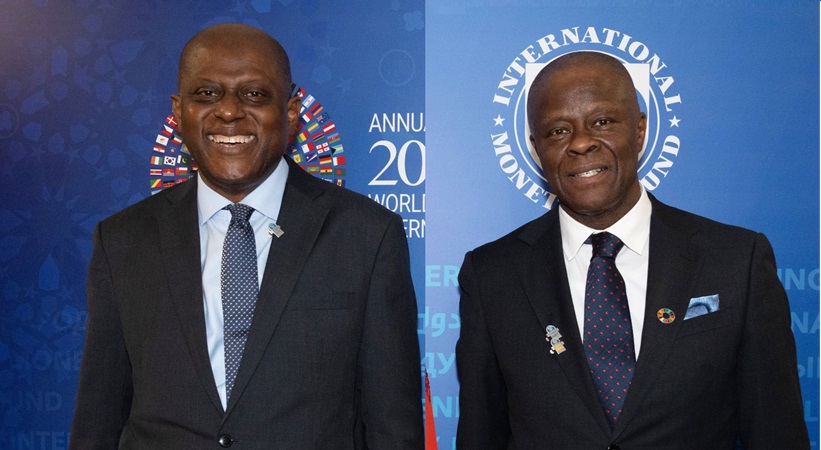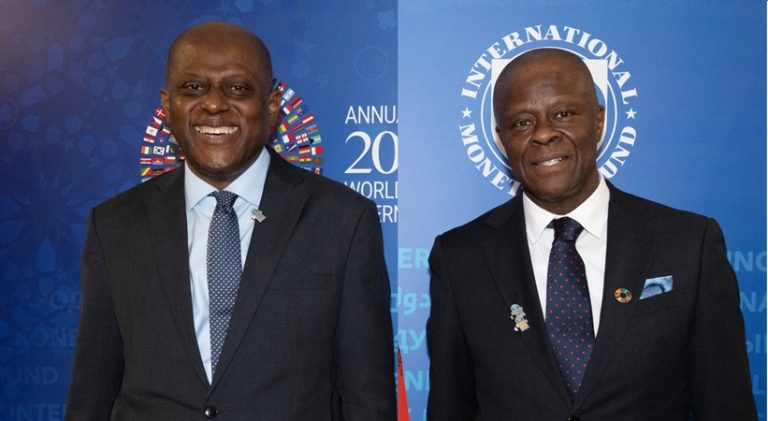Nigeria’s Fiscal Deficit Hits Record N13.51tn in 2024, Breaching Legal Threshold as Borrowing Surges


Nigeria’s fiscal deficit soared to N13.51 trillion in 2024, overshooting government projections and breaching the Fiscal Responsibility Act (FRA) limit of 3 percent of GDP, according to the latest Budget Implementation Report by the Budget Office of the Federation.
The report, which tracks government spending and revenue performance, shows that the deficit-to-GDP ratio climbed to 3.62 percent, exceeding the legally prescribed threshold under the FRA 2007.
In the 2024 fiscal framework, the quarterly fiscal deficit was initially projected at N2.29 trillion, excluding Government-Owned Enterprises (GOEs) and multilateral or bilateral project-tied loans amounting to N262.98 billion, the Budget Office said.
Register for Tekedia Mini-MBA edition 19 (Feb 9 – May 2, 2026): big discounts for early bird.
Tekedia AI in Business Masterclass opens registrations.
Join Tekedia Capital Syndicate and co-invest in great global startups.
Register for Tekedia AI Lab: From Technical Design to Deployment.
However, the actual fiscal outturns were far higher. The report revealed that inflows and outflows of funds in the fourth quarter resulted in a deficit of N7.17 trillion — a staggering N4.88 trillion (212.68%) higher than the prorated budget projection for the period.
“Overall, a total of N13.51 trillion deficit was recorded in 2024, representing a budget-to-GDP ratio of 3.62 percent, which is above the target rate of 3.0 percent as stipulated in the FRA 2007,” the Budget Office stated.
According to the report, the deficit was financed through multiple channels: N1.98 trillion from multilateral and bilateral project-tied loans, N6.06 trillion from domestic borrowing, N3.37 trillion from foreign borrowing, and N3.19 trillion from budget support facilities.

Mounting Fiscal Pressures
The sharp rise in the deficit underscores Nigeria’s persistent fiscal challenges, characterized by weak revenue mobilization, low oil output, and rising expenditure commitments.
By the end of the third quarter of 2024, the fiscal deficit had already reached N7.05 trillion, reflecting the widening gap between revenue and spending as the government struggled to fund large-scale infrastructure projects, subsidy costs, and social programs amid revenue shortfalls.
According to the International Monetary Fund (IMF), the trend is set to worsen. In its latest country report, the IMF projected that Nigeria’s fiscal deficit would widen further to 4.7 percent of GDP in 2025, higher than the government’s budget target.

“In the baseline, staff projects a consolidated fiscal deficit of 4.7 percent of GDP in 2025. This is higher than the budget, owing to lower oil prices and production, and already reflects lower-than-budgeted capital expenditure,” the IMF stated.
The Fund’s projection signals continued fiscal strain despite recent revenue measures, including subsidy removal and exchange rate unification.
Borrowing Surge and Rising Debt Stock
To plug the widening fiscal gap, the government has leaned heavily on borrowing, both domestically and externally. According to the DMO, Nigeria’s total public debt climbed to N152.40 trillion as of June 30, 2025, up from N149.39 trillion at the end of March — a quarterly increase of N3.01 trillion (2.01%).
In dollar terms, the total debt rose from $97.24 billion to $99.66 billion, representing a 2.49 percent increase within the same period.
The debt profile includes borrowings from bilateral partners such as China, France, Germany, and Japan, and from multilateral institutions like the World Bank, African Development Bank (AfDB), and Islamic Development Bank (IsDB).
Domestically, the government continues to raise funds through the issuance of FGN Bonds, Treasury Bills, Sukuk Bonds, Green Bonds, and Promissory Notes.
Economic Implications
The breach of the FRA’s fiscal deficit threshold highlights growing concerns about Nigeria’s fiscal discipline and debt sustainability. The Fiscal Responsibility Act (2007) stipulates that the government must keep its deficit within 3 percent of GDP, except under exceptional circumstances such as national emergencies or significant economic downturns.
Analysts say the persistent deficit and rising debt service costs leave limited room for critical capital expenditure, as a large share of government revenue is now absorbed by interest payments.
Economists have repeatedly warned that Nigeria’s debt service-to-revenue ratio — one of the highest globally — poses a significant risk to fiscal stability. Data from the 2024 budget performance report shows that debt servicing consumed nearly 90 percent of total revenue in the first half of the year.
With the IMF projecting weaker oil prices and declining production — key drivers of government revenue — the likelihood of fiscal consolidation in 2025 appears slim.
This means that as the 2025 fiscal year unfolds, Nigeria faces mounting pressure to balance ambitious spending with credible revenue reforms. The government’s increasing dependence on domestic borrowing also threatens to crowd out private sector access to credit, potentially slowing economic recovery.
The IMF has advised the government to broaden its tax base, enhance non-oil revenue, and rationalize expenditures to prevent fiscal vulnerabilities from escalating. Earlier this year, the tax reform bill was signed into law, presenting hope of higher revenue generation starting from January 2026.





